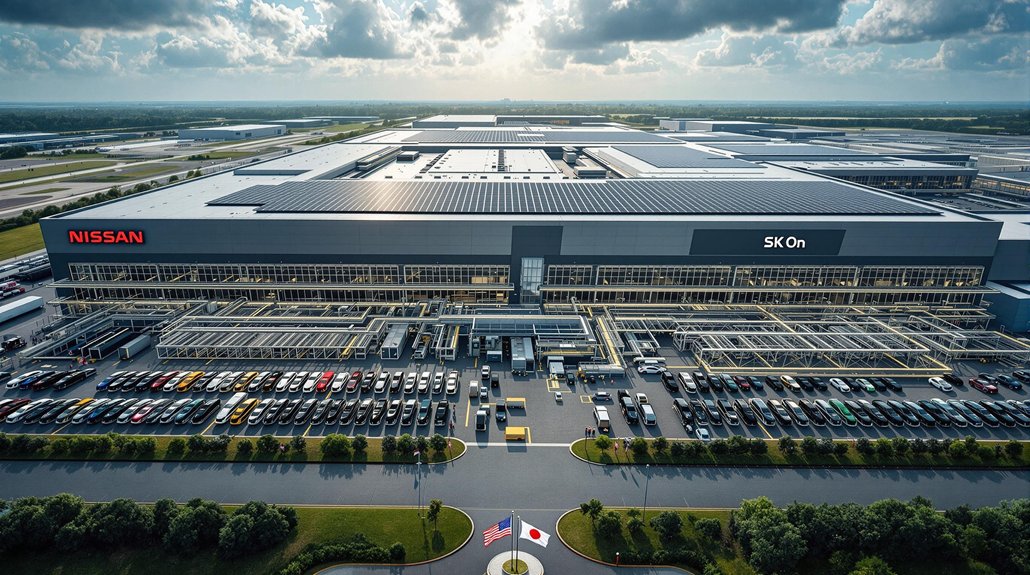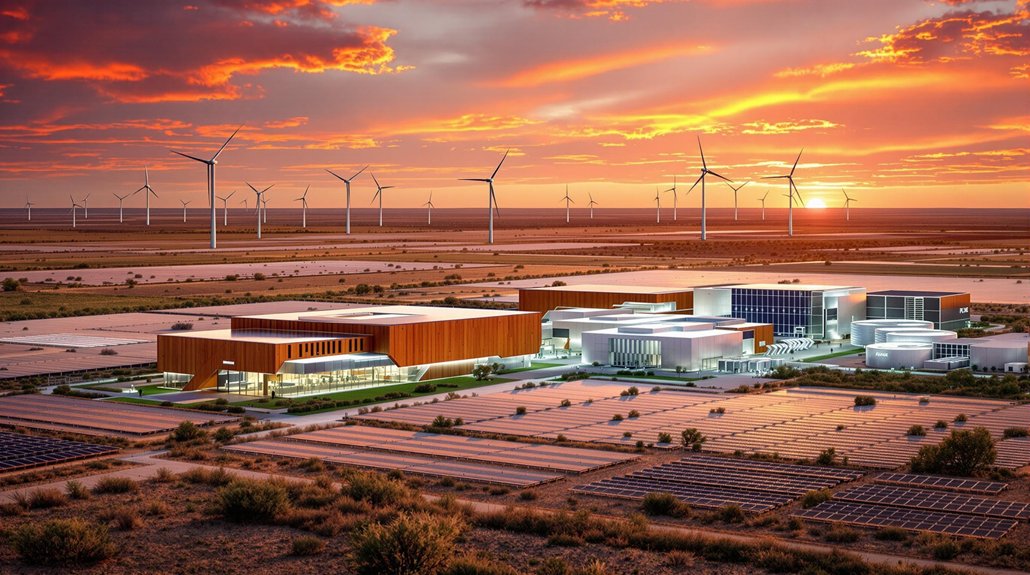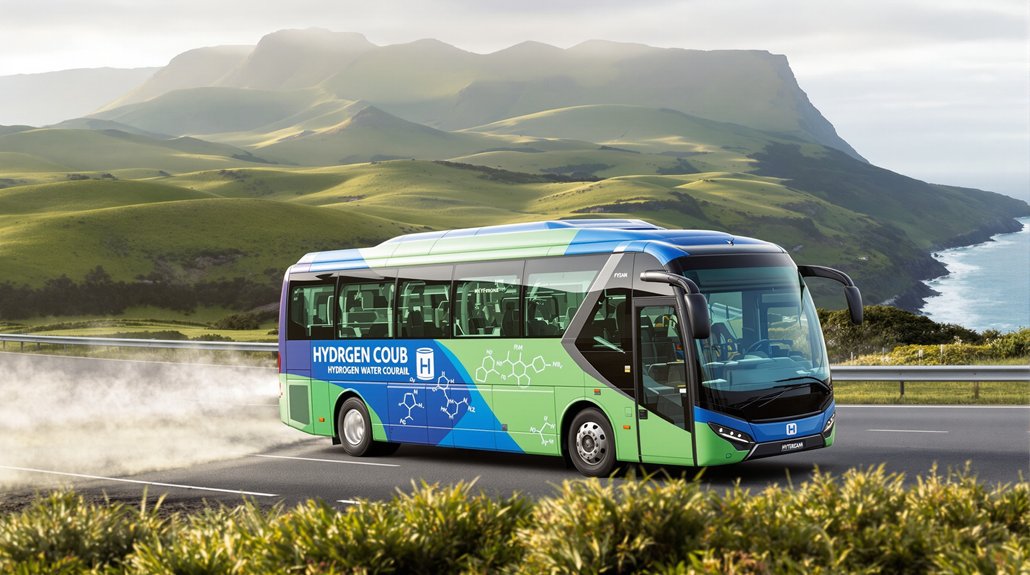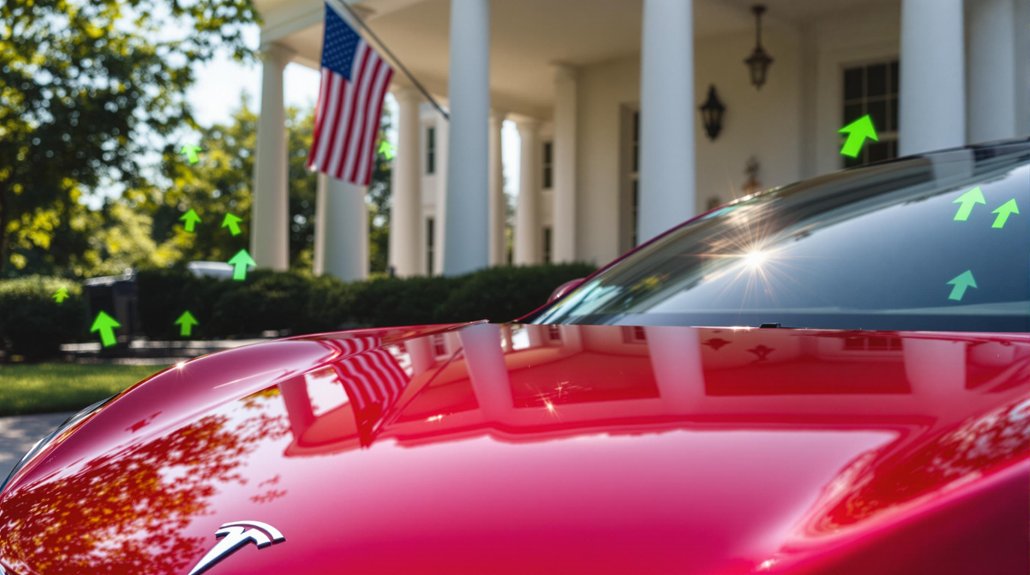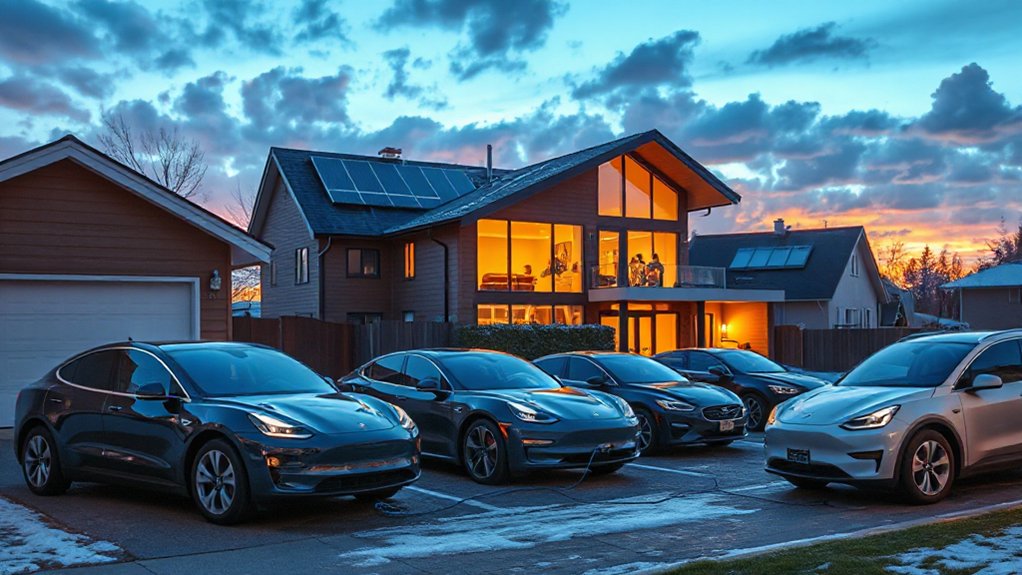Nissan just scored big. The Japanese automaker inked a $661 million deal with South Korean battery maker SK On, securing power for a million electric vehicles. Starting 2028, the partnership delivers 99.4 GWh of batteries through 2033. Production hits Mississippi soil, creating 1,700 American jobs. It’s Nissan’s counter-punch to Tesla’s dominance. Not just batteries—it’s Nissan’s ticket to survive the EV revolution that’s steamrolling the industry.
Nissan, Japan’s automotive powerhouse, has inked a massive deal with South Korean battery maker SK On. The agreement will see SK On supply a whopping 99.4 GWh of batteries to Nissan from 2028 to 2033. That’s enough juice for about a million electric vehicles. Not exactly pocket change, folks.
The deal, valued at $661 million, represents a significant investment in North American EV production. Nissan isn’t messing around anymore. After years of watching Tesla dominate the EV market, the Japanese giant is finally making serious moves. They’re planning to launch 16 new EVs over the next three years. Better late than never, right?
Nissan’s waking up to the EV revolution with a $661M battery deal. Tesla’s lead just got a little less comfortable.
SK On brings serious credentials to the table. The South Korean battery manufacturer, a subsidiary of SK Group, already operates two battery plants in the U.S. They’re building four more. Once everything’s up and running, their U.S. production capacity will hit around 180 GWh. That’s a lot of batteries.
The high-nickel, pouch-type battery cells will power Nissan’s American-made electric vehicles. Production will start at Nissan’s Canton, Mississippi plant, where the company has invested $500 million for EV manufacturing. The shift follows a global pattern where solar power jobs lead the renewable energy employment sector with nearly 5 million positions worldwide. Assembly begins in 2028. The timing lines up perfectly with the battery supply schedule. Coincidence? Hardly.
This partnership isn’t just good news for the two companies. It’s a win for the American EV landscape too. The deal supports the creation of 1,700 jobs in the battery sector and strengthens the U.S. position in the global EV supply chain. Less reliance on imported batteries. More local production. Makes sense.
The agreement reflects broader industry trends: growing global demand for EV batteries, increasing competition among battery manufacturers, and a shift toward localized production. Battery makers are racing to improve performance while reducing costs. Everyone wants cheaper EVs that go farther on a single charge. This aligns with projections showing 85 million electric vehicles expected on roads globally by the end of 2025.
And Nissan just secured a million vehicles’ worth of future power. Smart move.
Like UBS with its $500 million investment in the West Bank of Jefferson Parish, Nissan is positioning itself strategically in the competitive EV market.
